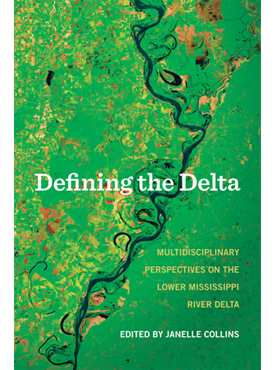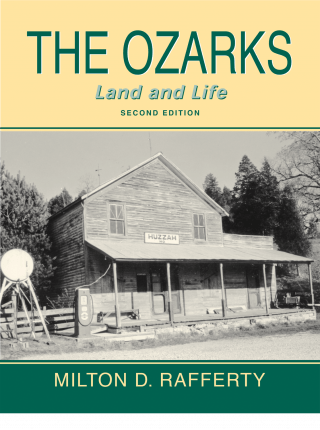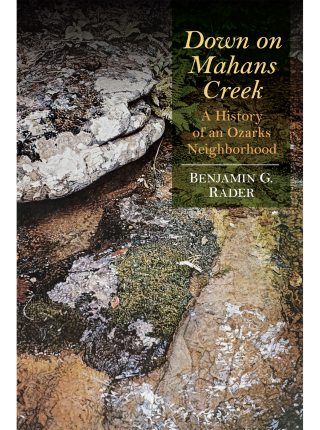Inspired by the Arkansas Review’s “What Is the Delta?” series of articles, Defining the Delta collects fifteen essays from scholars in the sciences, social sciences, and humanities to describe and define this important region.
Here are essays examining the Delta’s physical properties, boundaries, and climate from a geologist, archeologist, and environmental historian. The Delta is also viewed through the lens of the social sciences and humanities—historians, folklorists, and others studying the connection between the land and its people, in particular the importance of agriculture and the culture of the area, especially music, literature, and food.
Every turn of the page reveals another way of seeing the seven-state region that is bisected by and dependent on the Mississippi River, suggesting ultimately that there are myriad ways of looking at, and defining, the Delta.
Janelle M. Collins was general editor of Arkansas Review: A Journal of Delta Studies from 2009 to 2013. She is chair of the Department of English and Philosophy at Arkansas State University, where she teaches courses in African American and multi-ethnic American literature.
“Janelle Collins has done a commendable job of pulling together this rich and diverse collection of essays offering seventeen different ways of conceptualizing the Delta, beginning with a geologist’s description of its formation six hundred million years ago and ending with a literary historian’s analysis of post-Katrina literature. While accessible enough to interest the general reader, the information gathered here will be invaluable to serious students of the Delta for years to come.”
—Margaret Bolsterli
“As an introduction not only to the delta but to multiple scholarly approaches, this book might be an ideal volume for undergraduates who need to recognize the many directions scholarship can take. It is surely an excellent introduction for anyone asking definitional and scholarly questions about the Mississippi Delta.”
—Ted Ownby, Arkansas Historical Quarterly, Winter 2016
“Bringing together essays from experts in various fields, editor Janelle Collins attempt to create a volume that answers a long-standing question: what is the Mississippi Delta? The book is a result of Collins’s tenure as editor of the Arkansas Review: A Journal of Delta Studies, an interdisciplinary journal housed at Arkansas State University. Having been in contact with scholars from various fields during her time with the journal, Collins has seized the opportunity to bring the works of these scholars together in one book, with the hope of creating a more in-depth understanding of what constitutes the Delta. Collins puts the chapters of Defining the Delta: Multidisciplinary Perspectives on the Lower Mississippi River Delta in chronological order, beginning with “A Geologist’s Perspective on the Mississippi Delta” and followed by chapters on the environment, prehistory, and history of the region. The last two-thirds of the book examines the Delta sing European and African American settlement, looking at topics ranging from sociodemographic examination of the region to heritage tourism. Collins also includes various mediums in the work, most notably a photographic essay on blues musicians. Cultural history, specifically the blues, the impact of the blues, and musicians, receives the most coverage, followed by foodways and literature, which are the focus of the concluding chapters. Unlike many edited collections that tend to feel disjointed due to the varying writing styles of so many different contributors, there is a consistency of style and word usage, which is a compliment to the editor.”
—The Journal of Southern History, May 2018




